China Arts & Entertainment
All About the Chinese Films Featured at Busan Film Festival (Part III)
Published
6 years agoon
By
Gabi Verberg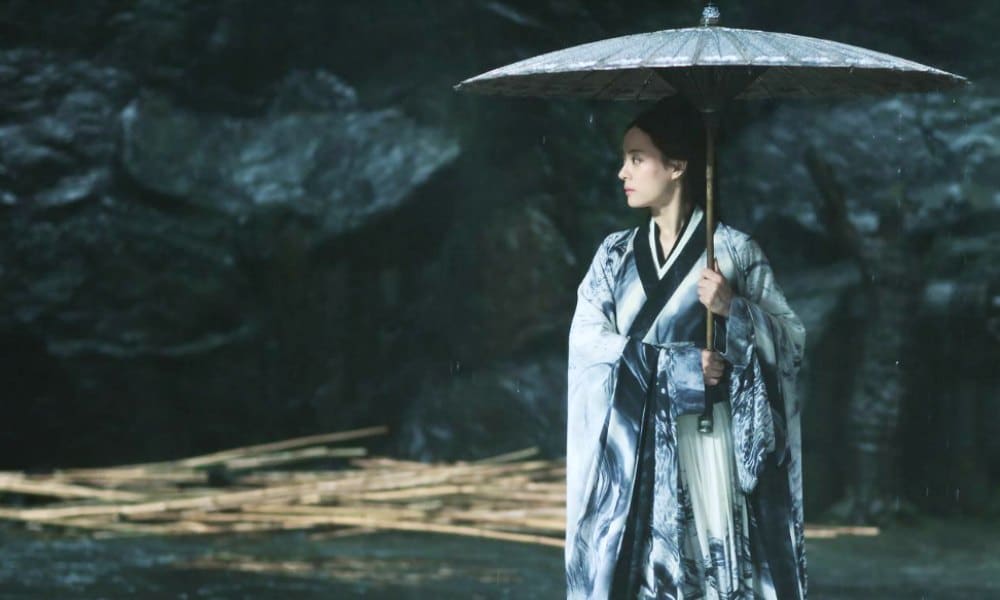
From Chinese dissident filmmakers to government-funded films, you can find it all at Busan, Asia’s biggest film festival. What’s on Weibo provides an overview of all the Chinese nominees at the festival. This week, the final 7 in our Part III (See Part I here, part II here).
On the 4th of October, the 23th Busan International Film Festival in South Korea finally kicked off. With the screening of 323 films from 79 countries, and 140 world and international premieres, it is one of Asia’s biggest and most exciting international film festivals, with China as one of the main suppliers of films.
This week, we will introduce to you to the final batch of the Chinese nominees, including mostly arthouse films in the category Wide Angle (many of them being short films), but also the big comeback of one of China’s greatest directors, Zhang Yimou.
1. My China (Wǒ de Jìngtóu 我的镜头)
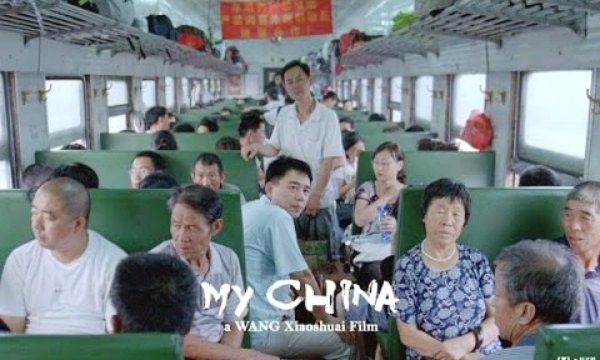
China Mainland/Hong Kong
Genre: Documentary (90 min)
Selected in the category: Wide Angle
Director: Wang Xiaoshuai (王小帅)
Premiere: 6th October 2018, Busan International Film Festival
About the Director:
Wang Xiaoshuai (王小帅) is a renowned Chinese director who was born in Shanghai in 1966. He directed his first film The Days (冬春的日子) in 1993, after which it immediately entered film festivals in Canada, Berlin, The Netherlands, Italy, London and many more. Since then, Wang has made around one film every two years.
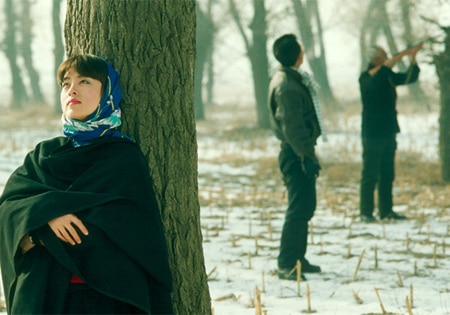
Scene from ‘The Days’ (冬春的日).
Wang especially gained international recognition since the 2001 film Beijing Bicycle (十七岁的单车), which became the winner of the Silver Bear Jury Grand Prix at the Berlin Film Festival and wowed critics with its story of a youth’s search for his stolen bicycle, particularly with its shades of Vittorio De Sica’s 1948 Bicycle Thieves. In 2005, Wang’s film Shanghai Dreams (青红) won the Jury Prize at Cannes Film Festival. Other famous works of Wang include Chongqing Blues (日照重庆) and Red Amnesia (闯入者) which were both nominated for best film at the Venice Film Festival.
Storyline:
My China, also known as Chinese Portrait, is a documentary portraying Chinese people and the places they live in during a period of upheaval. While traveling all over China, the documentary captures people from all walks of life, including miners, fishermen, farmers, students, or construction workers, with Wang Xiaoshuai himself being the main character and guide throughout the film.
See the trailer with Chinese subtitles here.
Why you should watch it:
Although Wang is one of the most famous Chinese directors outside the PRC, his works are often not welcomed within China. With his often-critical lens, he tries to lay bare contemporary China and her societal problems, leading to many of his works being banned in China.
Chinese Portrait might be Wang’s most personal work yet, as he questions his own identity in it by following the path of his family members; he tries to get to know his own country and get an understanding of how the country influenced him as a person. The film is a very intimate portrait of the director and an honest and a beautiful visualization of China’s tumultuous modern history.
2. On The Border (Yánbiān Shàonián 延边少年)
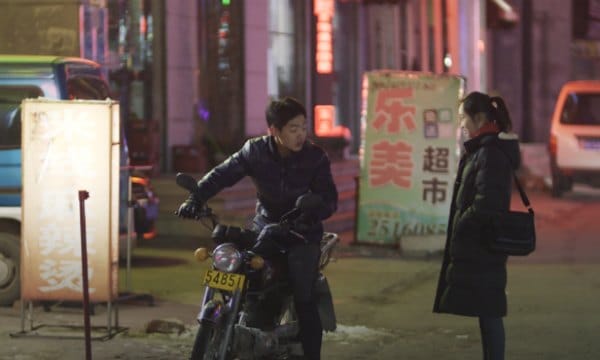
China Mainland
Genre: Drama/Short Film
Selected in the category: Wide Angle
Director: Wei Shujun (魏书钧)
Weibo Hashtag: #延边少年# (164.000+ views)
Premiere: 18th May 2018, Cannes International Film Festival
Starring: Li Zhengming, Cui Yuan, Fei Peng, Gang Yanming, Yang Gao and Zhao Lihua.
About the Director:
Wei Shujun (魏书钧) was born in 1991 in Beijing. At the age of 14, he first entered the film industry as an actor. In the years that followed, he worked in various junior positions, such as runner, assistant director, and sound recorder, before he directed his first documentary Said in the Forbidden City (说在紫禁城). In 2016, Wei had an international breakthrough with his first feature film Duck Neck (浮世千) which got him a nomination at the Busan Film Festival as the youngest nominated director that year.
Storyline:
This 15-minute film revolves around Hua Mingxing, a boy from a Korean ethnic group who lives in a Korean-Chinese border village. His father left him a long time ago to earn money in the city. As the boy is passing his time in the village that is mostly populated by elderly people, he decides to go and find his father in the city to ask him to finance his travel plans to Korea. But instead of finding his dad, Hua ends up roaming the streets of Yanbian, striking up a friendship with a young woman.
See here the trailer with English subtitles.
Why you should watch it:
On the Border was awarded with a Special Jury Distinction-Short Film at the Cannes Film Festival of 2018.
3. Void (Mèn 闷)

China Mainland
Genre: Drama/Short film
Selected in the category: Wide Angle
Director: Xu Jianshang (徐鉴赏)
Premiere: 19th June 2018, China Mainland
Starring: Chen Xuanyu (陈宣宇)
About the Director:
Majoring in film directing at Beijing Film Academy, Xu Jianshang received recognition for her short Lost in the City (城市), which won Best Screenplay at the Xiejin Academy Film Festival and got nominated for the French Poitiers Film Festival. She graduated from the Asian Film Academy in 2014 and directed the feature film Ma•amaa, a co-production between India and China. She is currently studying film production at Busan Asian Film School.
Storyline:
Pai is a Beijing-based student who is alone and struggling with her studies, her friends, and her living situation. When Pai tries to make things better, the this 19-minute short film shows how her situation further spirals out of control.
Noteworthy:
Despite the fact that Xu is still young, she already received much recognition for her work. Xu is the only female listed among all the directors in our three part overview of Chinese nominees at Busan.
4. In the Middle of Blue (Yīzhǐ lánsè de xiā 一只蓝色的虾)
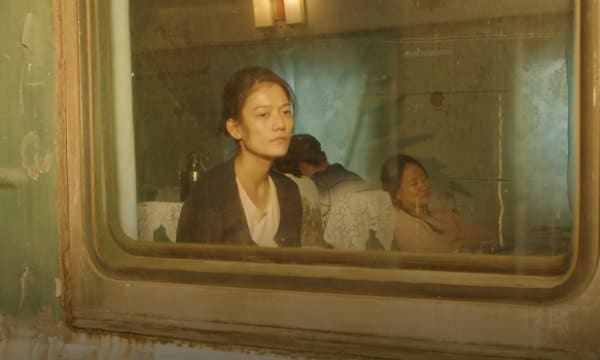
China Mainland
Genre: Drama/Short film
Selected in the category: Wide Angle
Director: Qi Ji or Miracle(祁骥)
Weibo Hashtag: #一只蓝色的虾# (315 views)
Premiere: 21th June 2018, Beijing Film Academy Graduation Show
Starring: Kong Yan (孔雁), Zhang Benyu (张本煜) and Zhang Lu (张鹭).
About the Director:
Qi Ji is a 22-year-old director that graduated from the Beijing Film Academy in July of this year. In 2016, after studying film for only one and a half year, he directed Belief (念) a short film portraying the Muslim minority in China. The film unexpectedly entered the International Youth Micro Film Exposition (国际青少年微电影) and ended in the top ten Best Chinese Films. For Qi’s second work, In the Middle of Blue, he won the jury award at the +86358 Short Film Festival.
See here his speech ‘Can an artist be made?’ on TEDx in English.
Storyline:
This 26-minute film features a female protagonist called Ye Hong, who is left by her husband after not being able to have children. Her life then takes a dramatic change, that unexpectedly leaves her having twins and only raising one of them.
Why you should watch it:
Qi is an extremely young and promising director that is worth keeping your eye on. This does not only show in his nomination for the Busan Film Festival, but is also evident from the cast he rounded up for this production.
5. Down There (Nàlǐ 那里)

China Mainland/France
Genre: Drama/Short film
Selected in the category: Wide Angle
Director: Yang Zhengfan (杨正帆)
Premiere: 6th of September 2018, Venice Film Festival
Starring: An Qigu, Wang Songhua and Chen Shaokai
About the Director:
Yang Zhengfan started his career in filmmaking in 2009, and in 2012 he set up production company ‘Burn the Film‘ with producer Zhu Shengze (朱声仄). In 2013, his work Distant (远方) received international attention and was nominated at the Locarno and Vancouver Film Festival. In 2016, he was invited at the Rotterdam International Film Festival, receiving the Jury Award at China Independent Film Festival and the Best Experimental Film Award at South Taiwan Film Festival with his work Where Are You Going (你往何处去).
In collaboration with Zhu, Yang also worked as a cinematographer and producer for two documentaries titled Out of Focus (虚焦) and Another Year (又一年). Both received much international attention.
Storyline:
A blissful night is unexpectedly interrupted by the sound of a woman desperately screaming downstairs. Residents of the apartment building do wonder about the sound, but it quickly loses their interest, and continue the thing that they were doing before. If nobody sees what happened, does that mean it becomes something that never happened? This 11-minute sgort film explores indifference and cruelty in the modern-day city.
See here the trailer with English subtitles.
Why you should watch it:
Down There received nominations for both the Venice International Film Festival and the New York Film Festival. Another reason why you should watch it, is that Yang has proved to be an expert in portraying individuality, loneliness, and exclusion of people in big cities. Whether he is portraying migrant worker families or middle age taxi drivers, Yang has a gift for showing the immensely intimidating effect the big city environment has on people.
6. Monkey Magic (Dànào Xīyóu 大闹西游)

China Mainland
Genre: Animation
Selected in the category: Wide Angle
Director: Ma Xihai (马系海)
Weibo Hashtag: #大闹西游# (3.498.000+ views)
Premiere: 22nd of September 2018, China
Starring: Sun Ye (孙晔), Shen Dawei (沈达威), Tao Dian (陶典) and Liu Beichen (刘北辰).
About the Director:
Ma Xihai began his career in the animation industry in the early 1990s. He started as a crew member, made it to senior graphic designer, production supervisor, and eventually executive director. Besides Monkey Magig, he has worked on many adaptions like Master Q: Incredible Pet Detective (老夫子之反斗侦探), Master Q: Fantasy Zone Battle (老夫子之魔界梦战记), and Storm Rider. His computer animations even brought him to South Korea where he produced a TV series, and to Japan where he worked on game animations. In 2013 he co-directed his first animation film The Soccer Way (圣龙奇兵大冒险). Monkey Magic will be the first film directed entirely by Ma.
Storyline:
Monkey Magic is a modern reinterpretation of the timeless Chinese classic Journey to the West. The story starts when toys refuse to admit that monkey Sun Wuyuan is the king of monkeys because he doesn’t have Sun Wukong’s magic stick. Full of determination, Sun Wuyuan goes to find the legendary king Sun Wukong on Mount Huaguo to give him the magic stick – the beginning of a tumultuous adventure.
See here the trailer with Chinese subtitles.
Why you should watch it:
The film has already seen a very good reception within China since it premiered, selling over 36 million tickets. It was the most popular film in theaters during the mid-autumn festival, and it already is the most successful animation film of 2018.
7. Shadow (Yǐng 影)
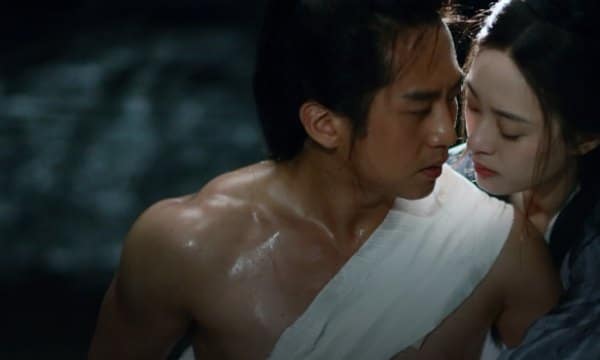
China Mainland
Genre: Drama/Action/Historic
Selected in the category: A View on Asian Cinema
Director: Zhang Yimou (张艺谋)
Weibo Hashtag: #影# (88.674.000+ views)
Premiere: 6th of September 2018, Venice Film Festival
Starring: Chao Deng (邓超), Sun Li (孙俪), Zheng Kai (郑恺), Wang Qianyuan (王千源), Wang Jingchun (王景春), Hu Jun (胡军), Guan Xiaotong (关晓彤) and Wu Leo (吴磊).
About the Director:
The renowned Zhang Yimou is an awarded cinematographer and director from Xi’an. He is often praised for his knowledge of Chinese history and his capacity to respectfully and truthfully transform these old stories into white screen productions. He is one of the few Chinese directors that is a regular at both Asian and western film festivals. In 2003, his film Hero (英雄) was nominated for an Oscar for the best foreign film. Other famous works include Red Sorghum 红高粱), Not One Less (一个都不能少), The Flowers of War (金陵十三钗), and his previous film starring Matt Damon, The Great Wall (长城).
In 2008, Zhang directed the opening- and closing ceremony of the Olympics held in Beijing, China. This gained him a very high reputation in both China and abroad. That same year, he was nominated for “person of the year” by the American Time Magazine.
Storyline:
Shadow is based on Zhu Sujin’s rendition of China’s legendary Three Kingdoms saga. It tells the story of Yu, a commander who lost his kingdom. In an attempt to regain his power and kingdom, he trains a boy named Jing to become his ‘shadow’ or double (note: Yu and Jing are both played by Chao Deng). But things go differently than he planned, with Jing falling in love with Yu’s wife and growing up to doubt his own identity and the path that was chosen for him.
See here the trailer with English subtitles.
Why you should watch it:
Variety was positive about the film and was talking of a comeback after Zhang’s somewhat soulless previous two films. The review read: “Every supremely controlled stylistic element of Zhang Yimou’s breathtakingly beautiful ‘Shadow’ is an echo of another, a motif repeated, a pattern recurring in a fractionally different way each time.”
Others describe the film as “rousing” and “typically beautiful.”
To see the other Chinese films at Busan, check Part I and Part II here.
By Gabi Verberg
Follow @whatsonweibo
Spotted a mistake or want to add something? Please let us know in comments below or email us.
©2018 Whatsonweibo. All rights reserved. Do not reproduce our content without permission – you can contact us at info@whatsonweibo.com.
Gabi Verberg is a Business graduate from the University of Amsterdam who has worked and studied in Shanghai and Beijing. She now lives in Amsterdam and works as a part-time translator, with a particular interest in Chinese modern culture and politics.

Also Read
China Arts & Entertainment
Singing Competition or Patriotic Fight? Hunan TV’s ‘Singer 2024’ Stirs Nationalistic Sentiments
“I’m in Zibo eating barbecue, I really don’t feel like listening to Alicia Keys.” Hunan TV’s ‘Singer 2024’ has set off a new wave of national pride in China’s music and performers.
Published
2 months agoon
May 17, 2024By
Ruixin Zhang
Besides memes and jokes, Hunan TV’s ‘Singer 2024’ has set off a new wave of national pride in China’s music and performers on Chinese social media.
In May, while the whole of Europe was gripped by the Eurovision Song Contest frenzy, Chinese audiences were eagerly anticipating the return of their own beloved singing competition, Singer 2024 (@湖南卫视歌手), formerly known as I Am a Singer (我是歌手).
The show, introduced from South Korea’s MBC Television and popular in China since 2013, only features professional singers who have already made a name for themselves.
Rather than watching unknown aspiring singers who are hoping to be discovered in many singing competitions, such as Sing! China, Singer 2024 gives audiences a show filled with professional and often stunning show performances by established names in the entertainment industry.
Since 2013, renowned singers from China and abroad have appeared on the show, including Chinese vocalist Tan Jing (谭晶), British pop singer Jessie J, and the late Hong Kong pop diva Coco Lee. However, no season managed to create as many waves as the 2024 season did, dominating all social media trending topics overnight.
So, what exactly happened?
COMPETING WITH FOREIGNERS
“The difference between the Grammys and the Strawberry Musical Festival”
In early May, the pre-show promotion of Singer 2024 was already buzzing on Chinese social media after a list of featured singers appeared on Weibo, including big names such as American singer-songwriter Bruno Mars, Korean-New Zealand singer Rosé from Blackpink, and Japanese diva LiSA.
Although Singer previously had many foreign singers on the show, this international celebrity lineup still caused a stir.
On the day of the first episode, only two foreign singers were announced to appear on the show: young Moroccan-Canadian singer Faouzia and the Grammy-nominated American singer-songwriter Chanté Moore. The other contestants were all Chinese singers who are already well-known among Chinese audiences. Because many people were unfamiliar with the two foreign singers, they joked that the winner of this season was already set in stone; surely it would be the famous Chinese singer Na Ying (那英), known for her beautiful voice.
However, that first episode surprised everyone as the two foreign singers, Faouzia and Chanté Moore, showed outstanding vocal skills. This not only startled many viewers but also made the Chinese contestants uneasy. Several experienced Chinese singers apparently were so unnerved after watching Faouzia and Chanté Moore’s performance that their voices trembled when singing.

Since the show was broadcast live – without post-production editing or autotune – audiences got to hear the actual vocal capabilities and see performers’ genuine reactions. It seemed undeniable that the foreign contestants did much better in terms of vocals and stage presence than the Chinese ones. Some online commenters even said that the gap between Chinese and foreign singers’ levels was like “the difference between the Grammys and the Strawberry Musical Festival” [a local Chinese music festival].
Chinese online influencer Yongkai (@陈咏开165) shared screenshots of Chanté Moore’s backstage reactions during the show. The American celebrity seemed puzzled when hearing the somewhat underwhelming performance by Chinese singer Yang Chenglin (楊丞琳), and she appeared much more positive when Na Ying sang.

This noteworthy scene, coupled with Chanté’s comments during an interview saying that she thought the Chinese production team had invited her on the show to be a judge, turned the entire show into a display of foreign singers outshining the Chinese contestants.
By the end of the first episode, Chanté Moore and Faouzia unsurprisingly ranked first and second, with Na Ying in third place.

After the show, some online commenters jokingly pointed out that Na Ying, being of Manchu descent like the rulers of China during the Qing Dynasty, showed some similarities to Empress Dowager Cixi’s defiance against Western colonizers in the way she “single-handedly took up against on foreigners” on the show.
They humorously turned Na Ying’s expressions into memes resembling Empress Dowager Cixi from an old Chinese TV show, with captions like “I want the foreigners dead” (“我要洋人死”).

Others suggested finding better Chinese singers for the show who could compete with Faouzia and Moore.
“SINGING WELL” CULTURALLY COLONIZED?
“I’m in Zibo eating BBQ, I really don’t want to listen to Alicia Keys.”
Initially, discussions about the show were light-hearted and humorous, until some netizens who couldn’t appreciate the jokes began to dampen the mood and made online discussions more serious.
Zou Xiaoying (@邹小樱), a music critic with nearly two million followers, posted on social media after the show, stating that he would have never voted for Chanté Moore or Faouzia. Not only did Zou question their vocal talent, he also wondered if the aesthetic of Chinese listeners had been influenced by Western music taste to such an extent that it has been “culturally colonized” (“文化殖民”). Meanwhile, he praised the members of Beijing rock band Second Hand Rose as “national heroes” (“民族英雄”).
He wrote:
If I had three votes for the first episode of “Singer 2024,” I’d vote for Second Hand Rose, Na Ying, and Silence Wang [note: Chinese singer-songwriter and record producer Wang Sushuang 汪苏泷]. The reason I wouldn’t vote for Chanté Moore or Faouzia is because — do they actually sing so well?
Has our definition of “singing well” perhaps been colonized? Just as our modern-day use of Chinese has little to do with our classical Chinese poems, with the foundation of modern Chinese actually being translations from the 20th century, is this also a form of ‘cultural colonization’?
You must think I’m talking nonsense again. But when I listen to Chanté Moore singing “If I Ain’t Got You,” I find it too boring. I know her singing is “good,” but this “good” has nothing to do with me. If, for Chinese listeners, Chanté Moore’s “good” is the standard, then is that what we in the music industry should be working towards? Isn’t that funny? When you open QQ Music or NetEase Cloud Music, and it recommends these songs to you every day, won’t you be convinced to practice again?
Of course, I know Chanté Moore is in good shape, very relaxed. Actually all of the Chinese singers tonight were very nervous. Yang Chenglin (杨丞琳) was nervous, Na Ying was also nervous. Even a seemingly carefree band like Second Hand Rose, if you listened to the introduction of their song, [you’ll find] they were so nervous that Yao Lan, supposedly “China’s No.1 Guitarist”, was so nervous that he hit the wrong note. It was not even a fast-paced solo (…), how nervous could he be? When everyone’s so tense, the confidence of Chanté Moore and Faouzia is indeed something that East Asia can’t match. In East-Asian [entertainment] circles, represented by China/Japan/Korea, our different cultural habits, upbringing, and ethnic characteristics have made it so that we don’t possess these kinds of singing abilities, even including our ways of emotional expression. I don’t know from which season it started with ‘Singer’ – and if it’s some kind of Catfish Effect (鲶鱼效应 ) – that they brought international singers with different cultural backgrounds into the competition. But this isn’t the Olympics, it’s not like Liu Xiang [刘翔, Chinese gold medal hurdler] is going to defeat opponents from the United States or Cuba. “I’m in Zibo eating barbecue, I really don’t feel like Alicia Keys.” (This line is not mine, I stole it from my WeChat friend).
Because of this, I find Second Hand Rose even more rare and precious. It’s just like I used to love asking: If you could only recommend one Chinese band to your foreign friends, which one would you recommend? Some say it’s New Pants (新裤子), some say it’s Omnipotent Youth Society, but my answer will always be Second Hand Rose. ‘The drama of Monkey King is a national treasure,’ its light will always shine. Facing the gunfire of Western powers, Second Hand Rose is standing on the frontline, they are our national heroes. Indeed, the band itself was nervous, (..), but when Chanté Moore goes off like a singing dolphin, we are fortunate to have Second Hand Rose at the frontline; the Chinese sons and daughters are building the Great Wall of Music of flesh and blood.
Because of this, I find Second Hand Rose even more rare and precious. It’s just like I used to love asking: If you could only recommend one Chinese band to your foreign friends, which one would you recommend? Some say it’s New Pants (新裤子), some say it’s Omnipotent Youth Society, but my answer will always be Second Hand Rose. ‘The drama of Monkey King is a national treasure,’ its light will always shine. Facing the gunfire of Western powers, Second Hand Rose is standing on the frontline, they are our national heroes. Indeed, the band itself was nervous, (..), but when Chanté Moore goes off like a singing dolphin, we are fortunate to have Second Hand Rose at the frontline; the Chinese sons and daughters are building the Great Wall of Music of flesh and blood.
Anyway, no matter if they’re strong or not, I would never vote for the foreigner.
The comment about ‘I’m in Zibo eating barbecue, I really don’t feel like [listening to] Alicia Keys’ refers to the craze surrounding China’s ‘BBQ town’ Zibo. In Zibo, Chinese visitors like to sing, drink beer, and enjoy food together; it’s a simple and modest way of appreciating life and music, which contrasts with slick and smooth American or foreign styles of performing and singing.
Whether Zou’s criticism was for attention or genuine sentiment, it shifted the focus of the discussion from music to patriotism.
CHINESE SINGERS WITH MILITARISTIC UNDERTONES
“I volunteer to join the battle”
Amidst all this, some netizens, easily swayed by nationalist sentiments, began to seek help from the “national team” (国家队) of singers — musicians employed by national-level arts troupes — to “bring glory to the nation” and teach the foreigners a lesson. Some even questioned the intentions of the Singer 2024 TV show in inviting foreign singers to participate.
On May 12th, renowned Chinese singer and philanthropist Han Hong (韩红) posted on Weibo, fueling a wave of sentiment and support. In her post, Han Hong declared, “I am Chinese singer Han Hong, and I volunteer to join the battle,” tagging the production team of the TV show. Her invitation to join the battle quickly went viral.

Han Hong meme: “Who called for me?”
Han Hong has significant influence in the Chinese music industry and society as a whole. Her usual serious demeanor and avoidance of internet pop culture made netizens unsure whether she was joking or serious. Nevertheless, regardless of her intentions, a group of well-known singers began to volunteer via Weibo, emphasizing their identity as “Chinese singers” and using phrases with strong militaristic undertones like “fighting for the country” and “answering the call.”
Although many enjoyed this new wave of national pride in Chinese music and performers, some netizens criticized the trend of transforming an entertainment show into a nationalistic competition.
Film critic He Xiaoqin (何小沁) stated, “It’s okay to take the Qing-Dynasty-fighting-foreigners comparison as a joke, but taking it too seriously in today’s context is absurd.”
Others expressed fatigue with how quickly topics on Chinese internet platforms escalate to patriotic sentiments. To bring the focus back to entertainment, they turned “I volunteer to join the battle” (#我请战#) into a new internet catchphrase.
In response, the production team of Singer 2024 released a statement on Weibo, thanking all the singers for their self-recommendations. They emphasized the show’s competitive structure but clarified that “winning” is just one part of a singer’s journey..but that the love of music goes beyond all in connecting people, no matter where they’re from.
By Ruixin Zhang, edited with further input by Manya Koetse
Independently reporting China trends for over a decade. Like what we do? Support us and get the story behind the hashtag by subscribing:
Spotted a mistake or want to add something? Please let us know in comments below or email us. First-time commenters, please be patient – we will have to manually approve your comment before it appears.
©2024 Whatsonweibo. All rights reserved. Do not reproduce our content without permission – you can contact us at info@whatsonweibo.com.
China Arts & Entertainment
“Old Bull Eating Young Grass”: 86-Year-Old Chinese Painter Fan Zeng Marries 36-Year-Old Xu Meng
Online reactions to the news of Fan’s marriage to Xu Meng, his fourth wife, reveal that the renowned artist is not particularly well-liked among Chinese netizens.
Published
3 months agoon
April 18, 2024
The recent marriage announcement of the renowned Chinese calligrapher/painter Fan Zeng and Xu Meng, a Beijing TV presenter 50 years his junior, has sparked online discussions about the life and work of the esteemed Chinese artist. Some netizens think Fan lacks the integrity expected of a Chinese scholar-artist.
Recently, the marriage of a 86-year-old Chinese painter to his bride, who is half a century younger, has stirred conversations on Chinese social media.
The story revolves around renowned Chinese artist, calligrapher, and scholar Fan Zeng (范曾, 1938) and his new spouse, Xu Meng (徐萌, 1988). On April 10, Fan announced their marriage through an online post accompanied by a picture.
In the picture, Fan is seen working on his announcement in calligraphic form.

Fan Zeng announces his marriage on Chinese social media.
In his writing, Zeng shares that the passing of his late wife, three years ago, left him heartbroken, and a minor stroke also hindered his work. He expresses gratitude for Xu Meng’s care, which he says led to his physical and mental recovery. Zeng concludes by expressing hope for “everlasting harmony” in their marriage.
Fan Zeng is a calligrapher and poet, but he is primarily recognized as a contemporary master of traditional Chinese painting. Growing up in a well-known literary family, his journey in art began at a young age. Fan studied under renowned mentors at the Academy of Fine Arts in Beijing, including Wu Zuoren, Li Keran, Jiang Zhaohe, and Li Kuchan.
Fan gained global acclaim for his simple yet vibrant painting style. He resided in France, showcased his work in numerous exhibitions worldwide, and his pieces were auctioned at Sotheby’s and Christie’s in the 1980s.[1] One of Fan’s works, depicting spirit guardian Zhong Kui (钟馗), was sold for over 6 million yuan (828,000 USD).

Zhong Kui in works by Fan Zeng.
In his later years, Fan Zeng transitioned to academia, serving as a lecturer at Nankai University in Tianjin. At the age of 63, he assumed the role of head of the Nankai University Museum of Antiquities, as well as holding various other positions from doctoral supervisor to honorary dean.
By now, Fan’s work has already become part of China’s twentieth-century art history. Renowned contemporary scholar Qian Zhongshu once remarked that Fan “excelled all in artistic quality, painting people beyond mere physicality.”
A questionable “role model”
Fan’s third wife passed away in 2021. Later, he got to know Xu Meng, a presenter at China Traffic Broadcasting. Allegedly, shortly after they met, he gifted her a Ferrari, sparking the beginning of their relationship.

A photo of Xu and her Hermes Birkin 25 bag has also been making the rounds on social media, fueling rumors that she is only in it for the money (the bag costs more than 180,000 yuan / nearly 25,000 USD).
On Weibo, reactions to the news of Fan’s marriage to Xu Meng, his fourth wife, reveal that the renowned artist is not particularly well-liked among netizens. Despite Fan’s reputation as a prominent philanthropist, many perceive his recent marriage as yet another instance of his lack of integrity and shamelessness.

Fan Zeng and Xu Meng. Image via Weibo.
One popular blogger (@好时代见证记录者) sarcastically wrote:
“Warm congratulations to the 86-year-old renowned contemporary erudite scholar and famous calligrapher Fan Zeng, born in 1938, on his marriage to Ms Xu Meng, a 50 years younger 175cm tall woman who is claimed to be China’s number one golden ratio beauty. Mr Fan Zeng really is a role model for us middle-aged greasy men, as it makes us feel much less uncomfortable when we’re pursuing post-90s youngsters as girlfriends and gives us an extra shield! Because if contemporary Confucian scholars [like yourself] are doing this, then we, as the inheritors of Confucian culture, can surely do the same!“
Various people criticize the fact that Xu Meng is essentially just an aide to Fan, as she can often be seen helping him during his work. One commenter wrote: “Couldn’t he have just hired an assistant? There’s no need to turn them into a bed partner.”
Others think it’s strange for a supposedly scholarly man to be so superficial: “He just wants her for her body. And she just wants him for his inheritance.”
“It’s so inappropriate,” others wrote, labeling Fan as “an old bull grazing on young grass” (lǎoniú chī nèncǎo 老牛吃嫩草).
Fan is not the only well-known Chinese scholar to ‘graze on young grass.’ The famous Chinese theoretical physicist Yang Zhenning (杨振宁, 1922), now 101 years old, also shares a 48-year age gap with his wife Weng Fen (翁帆). Fan, who is a friend of Yang’s, previously praised the love between Yang and Weng, suggesting that she kept him youthful.

Older photo posted on social media, showing Fan attending the wedding ceremony of Yang Zhenning and his 48-year-younger partner Weng Fen.
Some speculate that Fan took inspiration from Yang in marrying a significantly younger woman. Others view him as hypocritical, given his expressions of heartbreak over his previous wife’s passing, and how there’s only one true love in his lifetime, only to remarry a few years later.
Many commenters argue that Fan Zeng’s conduct doesn’t align with that of a “true Confucian scholar,” suggesting that he’s undeserving of the praise he receives.
“Mr. Wang from next door”
In online discussions surrounding Fan Zeng’s recent marriage, more reasons emerge as to why people dislike him.
Many netizens perceive him as more of a money-driven businessman rather than an idealistic artist. They label him as arrogant, critique his work, and question why his pieces sell for so much money. Some even allege that the only reason he created a calligraphy painting of his marriage announcement is to profit from it.
Others cast doubt on his status as a Chinese calligraphy ‘grandmaster,’ noting that his calligraphy style is not particularly impressive and may contain typos or errors. His wedding announcement calligraphy appears to blend traditional and simplified characters.

Netizens have pointed out what looks like errors or typos in Fan’s calligraphy.
Another source of dislike stems from his history of disloyalty and his feud with another prominent Chinese painter, Huang Yongyu (黄永玉). Huang, who passed away in 2023, targeted Fan Zeng in some of his satirical paintings, including one titled “When Others Curse Me, I Also Curse Others” (“人骂我,我亦骂人”). He also painted a parrot, meant to mock Fan Zeng’s unoriginality.

Huang Yongyu made various works targeting Fan Zeng.
In retaliation, Fan produced his own works mocking Huang, sparking an infamous rivalry in the Chinese art world. The two allegedly almost had a physical fight when they ran into each other at the Beijing Hotel.

Fan Zeng mocked Huang Yongyu in some of his works.
Fan and Huang were once on good terms though, with Fan studying under Huang at the Central Academy of Fine Arts in Beijing. Through Huang, Fan was introduced to the renowned Chinese novelist Shen Congwen (沈从文, 1902-1988), Huang’s first cousin and lifelong friend. As Shen guided Fan in his studies and connected him with influential figures in China’s cultural circles, their relationship flourished.
However, during the Cultural Revolution, when Shen was accused of being a ‘reactionary,’ Fan Zeng turned against him, even going as far as creating big-character posters to criticize his former mentor.[2] This betrayal not only severed the bond between Shen and Fan but also ended Fan’s friendship with Huang, and it is still remembered by people today.
Fan Zeng’s behavior towards another former mentor, the renowned painter Li Kuchan (李苦禪, 1899-1983), was also controversial. Once Fan gained fame, he made it clear that he no longer respected Li as his teacher. Li later referred to Fan as “a wolf in sheep’s clothes,” and apparently never forgave him. Although the exact details of their falling out remain unclear, some blame Fan for exploiting Li to further his own career.
There are also some online commenters who call Fan Zeng a “Mr Wang from next door” (隔壁老王), a term jokingly used to refer to the untrustworthy neighbor who sleeps with one’s wife. This is mostly because of the history of how Fan Zeng met his third wife.
Fan’s first wife was the Chinese female calligrapher Lin Xiu (林岫), who came from a wealthy family. During this marriage, Fan did not have to worry about money and focused on his artistic endeavours. The two had a son, but the marriage ended in divorce after a decade. Fan’s second wife was fellow painter Bian Biaohua (边宝华), with whom he had a daughter. It seems that Bian loved Fan much more than he loved her.
It is how he met his third wife that remains controversial to this day. Nan Li (楠莉), formerly named Zhang Guiyun (张桂云), was married to performer Xu Zunde (须遵德). Xu was a close friend of Fan, and helped him out when Fan was still poor and trying to get by while living in Beijing’s old city center.
Wanting to support Fan’s artistic talent, Xu let Fan Zeng stay over, supported him financially, and would invite him for meals. Little did he know that while Xu was away to work, Fan enjoyed much more than meals alone; Fan and Xu’s wife engaged in a secret decade-long affair.
When the affair was finally exposed, Xu Zunde divorced his wife. Still, they would use his house to meet and often locked him out. Three years later, Nan Li officially married Fan Zeng. Xu not only lost his wife and friend but also ended up finding his house emptied, his two sons now bearing Fan’s surname.
When Nan Li passed away in 2021, Fan Zeng published an obituary that garnered criticism. Some felt that the entire text was actually more about praising himself than focusing on the life and character of his late wife, with whom he had been married for forty years.

Fan Zeng and his four wives
An ‘old pervert’, a ‘traitor’, a ‘disgrace’—there are a lot of opinions circulating about Fan that have come up this week.
Despite the negativity, a handful of individuals maintain a positive outlook. A former colleague of Xu Meng writes: “If they genuinely like each other, age shouldn’t matter. Here’s to wishing them a joyful marriage.”
By Manya Koetse
[1]Song, Yuwu. 2014. Biographical Dictionary of the People’s Republic of China. United Kingdom: McFarland & Company, 76.
[2]Xu, Jilin. 2024. “Xu Jilin: Are Shen Congwen’s Tears Related to Fan Zeng?” 许纪霖:沈从文的泪与范曾有关系吗? The Paper, April 15. https://www.thepaper.cn/newsDetail_forward_27011031. Accessed April 17, 2024.
Independently reporting China trends for over a decade. Like what we do? Support us and get the story behind the hashtag by subscribing:
Spotted a mistake or want to add something? Please let us know in comments below or email us. First-time commenters, please be patient – we will have to manually approve your comment before it appears.
©2024 Whatsonweibo. All rights reserved. Do not reproduce our content without permission – you can contact us at info@whatsonweibo.com.
Subscribe

Weibo Watch: The Future is Here

“Bye Bye Biden”: Biden’s Many Nicknames in Chinese

Enjoying the ‘Sea’ in Beijing’s Ditan Park

A Triumph for “Comrade Trump”: Chinese Social Media Reactions to Trump Rally Shooting

Weibo Watch: Get Up, Stand Up

The Tragic Story of “Fat Cat”: How a Chinese Gamer’s Suicide Went Viral

“Old Bull Eating Young Grass”: 86-Year-Old Chinese Painter Fan Zeng Marries 36-Year-Old Xu Meng

A Brew of Controversy: Lu Xun and LELECHA’s ‘Smoky’ Oolong Tea

Singing Competition or Patriotic Fight? Hunan TV’s ‘Singer 2024’ Stirs Nationalistic Sentiments

Zara Dress Goes Viral in China for Resemblance to Haidilao Apron

Weibo Watch: The Battle for the Bottom Bed

About the “AI Chatbot Based on Xi Jinping” Story

China’s Intensified Social Media Propaganda: “Taiwan Must Return to Motherland”

Weibo Watch: Telling China’s Stories Wrong

Saying Goodbye to “Uncle Wang”: Wang Wenbin Becomes Chinese Ambassador to Cambodia
Get in touch
Would you like to become a contributor, or do you have any tips or suggestions? Get in touch here!
Popular Reads
-

 China Insight3 months ago
China Insight3 months agoThe Tragic Story of “Fat Cat”: How a Chinese Gamer’s Suicide Went Viral
-

 China Music4 months ago
China Music4 months agoThe Chinese Viral TikTok Song Explained (No, It’s Not About Samsung)
-

 China Digital10 months ago
China Digital10 months agoToo Sexy for Weibo? Online Discussions on the Concept of ‘Cābiān’
-

 China Arts & Entertainment12 months ago
China Arts & Entertainment12 months agoBehind 8 Billion Streams: Who is Dao Lang Cursing in the Chinese Hit Song ‘Luocha Kingdom’?





